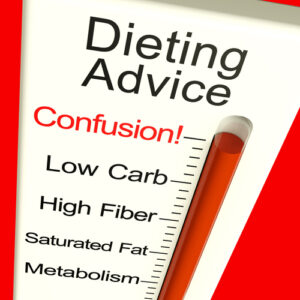What Does This Study Mean For You?
Author: Dr. Stephen Chaney
 You have probably heard the statement that optimists live longer before. In fact, you have probably heard so many times you assume it must be true. But is it a myth or is it the truth?
You have probably heard the statement that optimists live longer before. In fact, you have probably heard so many times you assume it must be true. But is it a myth or is it the truth?
This question is important because it can affect how people feel about themselves. If you are a natural optimist, statements like this support your feeling of self-worth. But if you are naturally pessimistic, statements like this provide one more reason to feel bad about yourself.
For example, a recent article on the topic in WebMD starts with the statement, “Want to live longer? You might want to try improving your outlook on life.” I am mostly optimistic, so I find this statement to be positive and encouraging.
But I am not sure I would feel about this statement if I were pessimistic or depressed and had tried for years to be more optimistic.
Because of this it is important to ask, “How good is the evidence supporting this claim?”
There are several published studies supporting this claim (For example). However,
- Most of these studies have been performed with white, high-income participants. It is not clear whether these same results would apply to other racial and ethnic groups.
- There is also the “chicken versus egg” conundrum. The studies claiming that optimists live longer are all association studies. Simply put, that means optimism is associated with longevity, but does not prove cause and effect. That is important because:
-
- Some studies show that both a healthy diet and exercise improve mood.
-
- Other studies show that optimists tend to take better care of themselves, and that includes both diet and exercise.
-
- So, it’s hard to know which comes first – a healthy lifestyle, which creates optimism, or optimism, which creates a healthy lifestyle.
- Because of this “chicken versus egg” conundrum, it is not clear whether it is a healthy lifestyle or optimism that is the primary cause of greater longevity.
The study (HK Koga et al, Journal of the American Geriatrics Society, 70: 2793-2804, 2022)) I will review today was designed to answer both questions. Specifically, this study was designed to ask:
- Is higher optimism associated with a longer lifespan and exceptional longevity across diverse racial and ethnic groups?
- To what extent do lifestyle factors influence this association?
How Was The Study Done?
 The data for this study was obtained from the Women’s Health Initiative which enrolled 161,808 postmenopausal women of diverse racial and ethnic groups from 40 medical centers within the United States between 1993 and 1998. The women were aged 50-79 (average = 63.5) at enrollment and were followed for an average of 26 years.
The data for this study was obtained from the Women’s Health Initiative which enrolled 161,808 postmenopausal women of diverse racial and ethnic groups from 40 medical centers within the United States between 1993 and 1998. The women were aged 50-79 (average = 63.5) at enrollment and were followed for an average of 26 years.
Optimism was assessed at enrollment into the program using the 6-item Life Orientation Test Revised. For each item on the questionnaire, participants were asked to report the degree they agreed with each statement on a scale of 1 = “strongly agree” to 5 = “strongly disagree”. Their responses were summed to create scores ranging from 6 to 30, with 30 being the highest optimism rating.
Lifestyle was assessed on a questionnaire measuring diet quality, physical activity, BMI (a measure of obesity), smoking status, and alcohol consumption. If participants met predefined “healthy standards in each of these categories, they were given a score of 1. Otherwise, their score was 0. Scores from each category were summed to create a composite lifestyle score ranging from 0 (least healthy) to 5 (most healthy).
Longevity was based on survival compared to national averages using the National Death Index (Yes, “Big Brother” is watching you even when you die) to identify and confirm deaths. Deaths of participants were monitored through March 1, 2019. Exceptional longevity was defined as survival to age 90 or older. Overall, 64,301 women (40.3%) died over the 26 years of follow-up.
Finally, women who died within the first 2 years of follow-up were excluded from the data analysis “to mitigate concerns that health status might affect the reporting or experience of optimism levels.” In plain English, people who are within 2 years of dying are often very sick and feel lousy. Even the most optimistic individuals find it hard to maintain an optimistic outlook in those circumstances. This left 159,255 women in the database.
Do Optimists Live Longer?
 When comparing women in the highest to women in the lowest quartile of optimism:
When comparing women in the highest to women in the lowest quartile of optimism:
- Longevity was increased by 5.4%, which corresponds to an additional 4.4 years. When this was broken down by race and ethnicity, longevity was increased by:
-
- 1% for Non-Hispanic White women.
-
- 6% for Black women.
-
- 4% for Hispanic women.
-
- 5% for Asian women. However, this may have been an underestimate because of the small sample size of this population in the Women’s Health Initiative database.
- Exceptional longevity (survival ≥ 90 years) was increased 10%.
When the authors used a complex statistical method to assess the contribution of lifestyle to the increase in longevity, they found:
- Lifestyle contributed to 24% of the increased longevity. When this was broken down by race and ethnicity, lifestyle contributed:
-
- 25% for Non-Hispanic White women.
-
- 10% for Black women.
-
- 24% for Hispanic women.
-
- 43% for Asian women.
The authors concluded, “We found that higher levels of optimism were associated with longer lifespan and greater likelihood of achieving exceptional longevity across racial and ethnic groups, suggesting the health benefits of optimism may hold across these groups.”
“The contribution of lifestyle to these associations was evident but modest.”
“As prior work has demonstrated that optimism is modifiable, it may be a novel target for interventions that aim to extend lifespan across diverse racial and ethnic groups.”
What Are The Strengths And Weaknesses Of This Study?
 This is not the first study to suggest that optimists live longer. But it is the best study to date because:
This is not the first study to suggest that optimists live longer. But it is the best study to date because:
- It was larger (159,255 participants) than most previous studies.
- It followed the participants far longer (26 years) than previous studies.
- It included a more racially and ethnically diverse group of participants than previous studies.
- It addressed the “elephant in the room” for studies of this type, namely that optimists tend to actively seek a healthier lifestyle, so the “benefits” of optimism could be due to a healthy lifestyle rather than a state of mind. The study employed statistics to estimate that a healthy lifestyle contributed around 25% to the longevity experienced by optimists.
However, the study did have some weaknesses. In my opinion, the most important weaknesses were:
- Optimism and lifestyle were only assessed at the beginning of the study. No effort was made to determine whether either of these important variables changed during the 26-year study.
- The relative influence of lifestyle and optimism on longevity was based on a complex statistical analysis. As Mark Twain said, “There are lies, damn lies, and statistics.” Simply put, statistics can sometimes give misleading answers. I would like to see this very important part of the study confirmed using a different method of analysis.
What Does This Study Mean For You?
 As I shared above, I have some misgivings about this and other studies claiming that optimists live longer. But let’s assume this claim is true. What does that mean for you?
As I shared above, I have some misgivings about this and other studies claiming that optimists live longer. But let’s assume this claim is true. What does that mean for you?
A 5.4% increase in lifespan might not sound like much, but it added 4.4 years to the lives of the women in the study. What would you do with an extra 4.4 years?
And, as the authors of the study pointed out, that’s equivalent to the gain in lifespan for adults engaged in a regular exercise program. Are those benefits addible? We don’t know, but it is possible that an optimist who exercised regularly and had a healthy diet might experience more than a 4-year gain in lifespan.
The authors said, “Although optimism is partly heritable (23-32%), experimental research has demonstrated that optimism is modifiable…”
Let me share a few things that have helped me maintain a more optimistic outlook:
- Affirmations and visualizations of a positive future.
- I start my daily prayers by listing the things I am grateful for. For others, a gratitude journal works equally well.
- Accept positive input. You can accept compliments with humility by simply thanking the person for the compliment. But in your mind, use the compliment to overcome your inner doubts of self-worth.
- Question negative input. Ask if each critic is the kind of person you want to become. If so, ask if what they said is really true.
- Create a support network. These are family and friends who will support you when you need it and will give you a gentle kick in the …. when you need that.
- Trust in a higher power. I know from experience that it is only God who can give me the “peace that passes all understanding” in my most difficult circumstances. And while I am Christian, I think this is a cornerstone of most religions.
Finally, I know that many people are predisposed to depression and pessimism, so I don’t want to be like the author of the WebMD article and tell you, “Want to live longer? You might want to try improving your outlook on life.”
We know that a healthy lifestyle is associated with longevity. And you don’t have to be an optimist to choose a healthy diet, exercise regularly, avoid smoking and excess alcohol intake, and get regular health check-ups.
We also know these things are associated with a longer healthspan which, simply put, is the number of years you live in good health.
So, whether you are a pessimist or an optimist you can live healthier longer.
The Bottom Line
You have probably heard that optimists live longer, but is it true? In the article above I describe the latest study on this topic. It is better than most previous studies on this topic because:
- It was larger (159,255 participants) than most previous studies.
- It followed the participants far longer (26 years) than previous studies.
- It included a more racially and ethnically diverse group of participants than previous studies.
- It addressed the “elephant in the room” for studies of this type, namely that optimists tend to actively seek a healthier lifestyle, so the “benefits” of optimism could be due to a healthy lifestyle rather than a state of mind. The study employed statistics to estimate that a healthy lifestyle contributed around 25% to the longevity experienced by optimists.
When the study compared women in the highest to women in the lowest quartile of optimism:
- Longevity was increased by 5.4%, which corresponds to an additional 4.4 years.
- Exceptional longevity (survival ≥ 90 years) was increased by 10%.
- Lifestyle contributed to 24% of the increased longevity.
The authors concluded, “We found that higher levels of optimism were associated with longer lifespan and greater likelihood of achieving exceptional longevity across racial and ethnic groups, suggesting the health benefits of optimism may hold across these groups.”
“As prior work has demonstrated that optimism is modifiable, it may be a novel target for interventions that aim to extend lifespan across diverse racial and ethnic groups.”
For more details on this study and what it means for you, read the article above.
These statements have not been evaluated by the Food and Drug Administration. This information is not intended to diagnose, treat, cure or prevent any disease.
______________________________________________________________________________
My posts and “Health Tips From the Professor” articles carefully avoid claims about any brand of supplement or manufacturer of supplements. However, I am often asked by representatives of supplement companies if they can share them with their customers.
My answer is, “Yes, as long as you share only the article without any additions or alterations. In particular, you should avoid adding any mention of your company or your company’s products. If you were to do that, you could be making what the FTC and FDA consider a “misleading health claim” that could result in legal action against you and the company you represent.
For more detail about FTC regulations for health claims, see this link.
https://www.ftc.gov/business-guidance/resources/health-products-compliance-guidance
______________________________________________________________________
About The Author
 Dr. Chaney has a BS in Chemistry from Duke University and a PhD in Biochemistry from UCLA. He is Professor Emeritus from the University of North Carolina where he taught biochemistry and nutrition to medical and dental students for 40 years.
Dr. Chaney has a BS in Chemistry from Duke University and a PhD in Biochemistry from UCLA. He is Professor Emeritus from the University of North Carolina where he taught biochemistry and nutrition to medical and dental students for 40 years.
Dr. Chaney won numerous teaching awards at UNC, including the Academy of Educators “Excellence in Teaching Lifetime Achievement Award”.
Dr Chaney also ran an active cancer research program at UNC and published over 100 scientific articles and reviews in peer-reviewed scientific journals. In addition, he authored two chapters on nutrition in one of the leading biochemistry text books for medical students.
Since retiring from the University of North Carolina, he has been writing a weekly health blog called “Health Tips From the Professor”. He has also written two best-selling books, “Slaying the Food Myths” and “Slaying the Supplement Myths”. And most recently he has created an online lifestyle change course, “Create Your Personal Health Zone”. For more information visit https://chaneyhealth.com.
For the past 45 years Dr. Chaney and his wife Suzanne have been helping people improve their health holistically through a combination of good diet, exercise, weight control and appropriate supplementation.








































